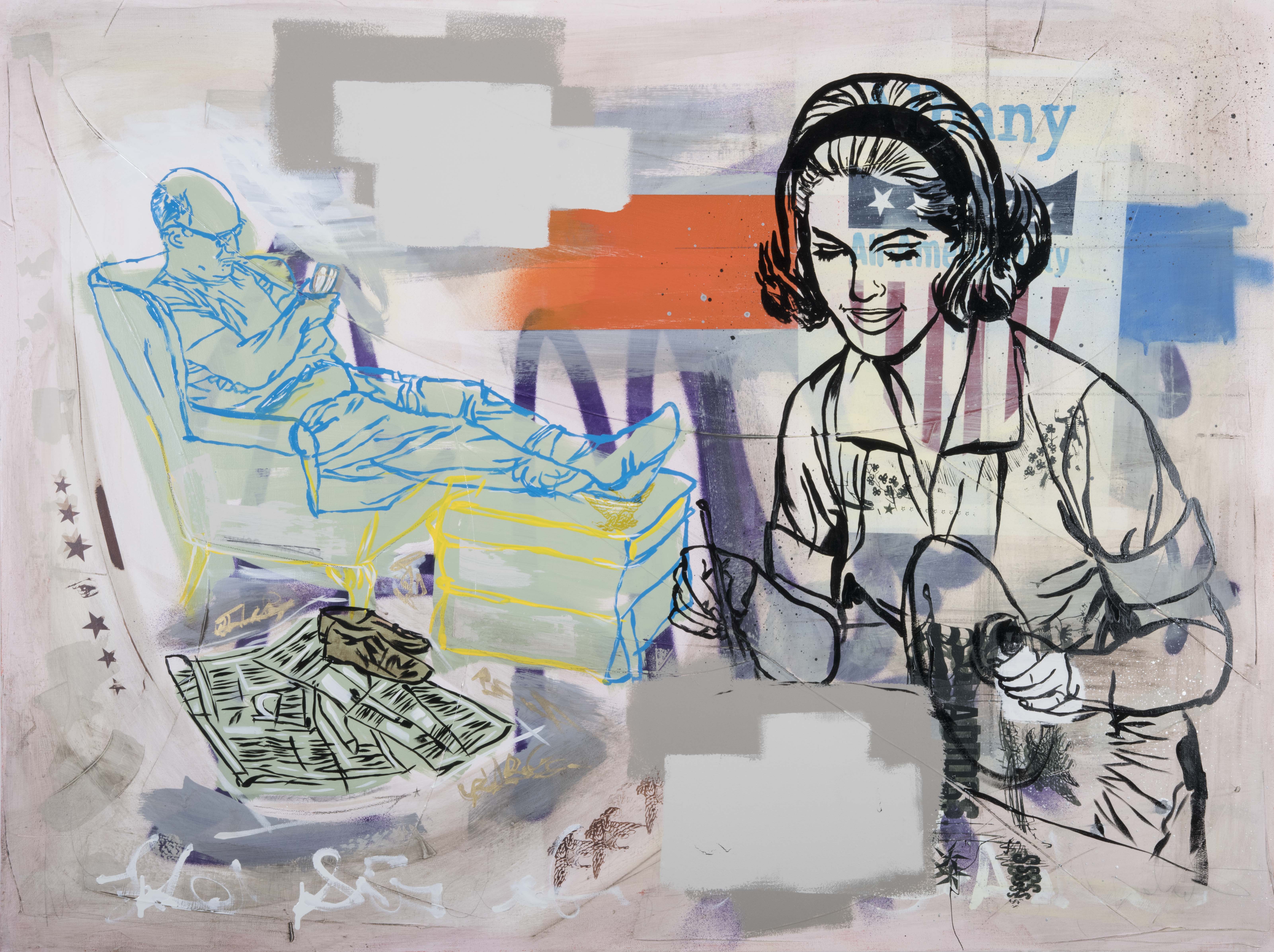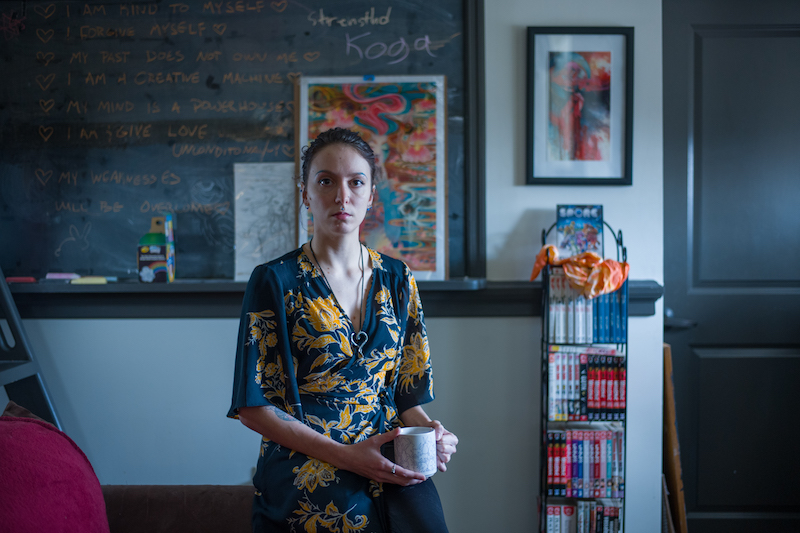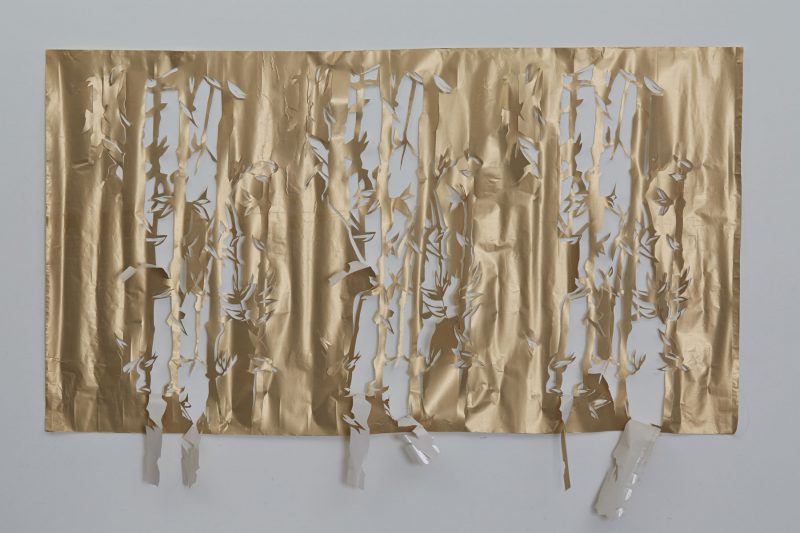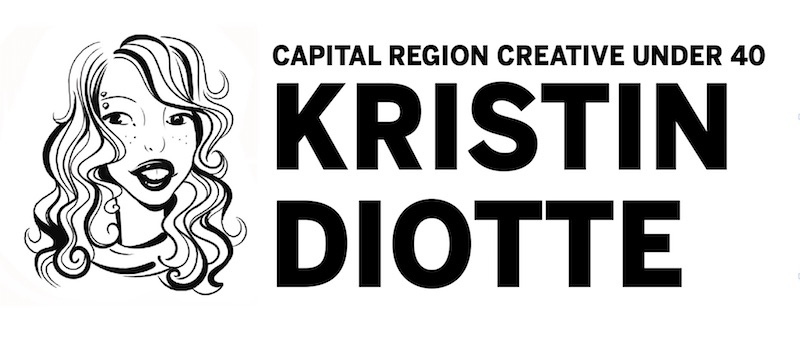Featured image: “The Children’s Teeth Are Set on Edge,” 2019, 36″ X 48,” mixed media on canvasby Scout Pines
Scout (AKA Scout Pines) is set to challenge what it means to be a “patriotic” American in “A More Perfect Union,” an exhibit opening in his hometown of Chatham at the Thompson Giroux Gallery on Saturday. His distinctive portraits of marginalized individuals are fixtures across the Capital Region and Columbia County.
In his new work he utilizes elements of classic advertising from the 1940s and ‘50s with red, white and blue, painting smeared over them to insert a new divergent message.
His imagery was particularly ubiquitous during the Congressional race between Republican Incumbent John Faso and Democratic challenger (now incumbent) Antonio Delgado. One image touted “Adios John Faso Let’s Flip NY’s 19th.”
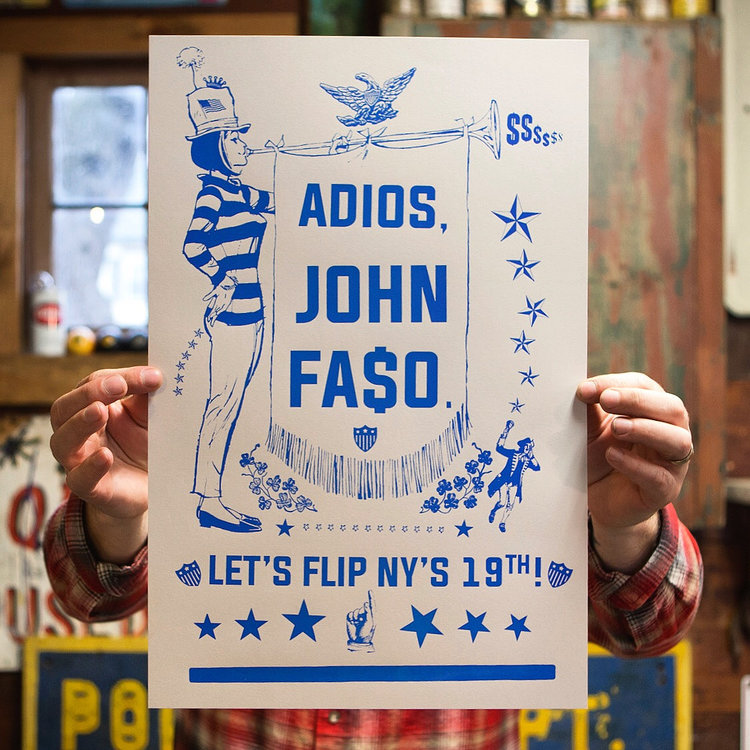
We chatted with Scout this week about his decision to get involved in the race, his drive to share his message with the public, the challenges of being a street artist in the age of social media, and how gentrification is impacting his work and local communities.
The Collaborative: A lot of our readers, whether they know it or not, are probably familiar with your work due to your involvement in the 19th District Congressional race. Why did you decide to get involved in politics?
Scout: Years ago my uncle was a politician in Rensselaer County and I got involved with the campaign. Really I got into graffiti with putting stickers up for my uncle. Seeing my name up there was addictive, I got a rush. So that is sort of how it all started.
The Delgado race was about recognizing that this smaller race not only had a local impact but national implications where I could really do something. Faso was just so terrible down here, in my opinion. So I decided to go all-in on this race. I probably would have done the same for many other candidates. I had crossed paths with Faso over the years and he seemed so insincere. It wasn’t just because he was a Republican. I encountered Rep. Chris Gibson (a Republican) a number of times and he was a decent human being. I didn’t agree with his policies but there was a difference.
The Collaborative: Tell me about the show. Why now?
Scout: I like to do a solo show about every year, year-and-a-half. I like to take my time making work, not just crank it out. I wanted to do it right here in Chatham where I live. My motivation was today’s political climate. My art is a coping mechanism in a way, to get it out.
And I really wanted to have this conversation about patriotism with the people in my community.
I don’t mean to be alarmist, but we are living in pretty terrifying times in this country. I’m not the kind of artist that is sequestered off dealing with esoteric ideas—it just is not how I operate. I can’t section off community, art, politics—it’s all one thing.
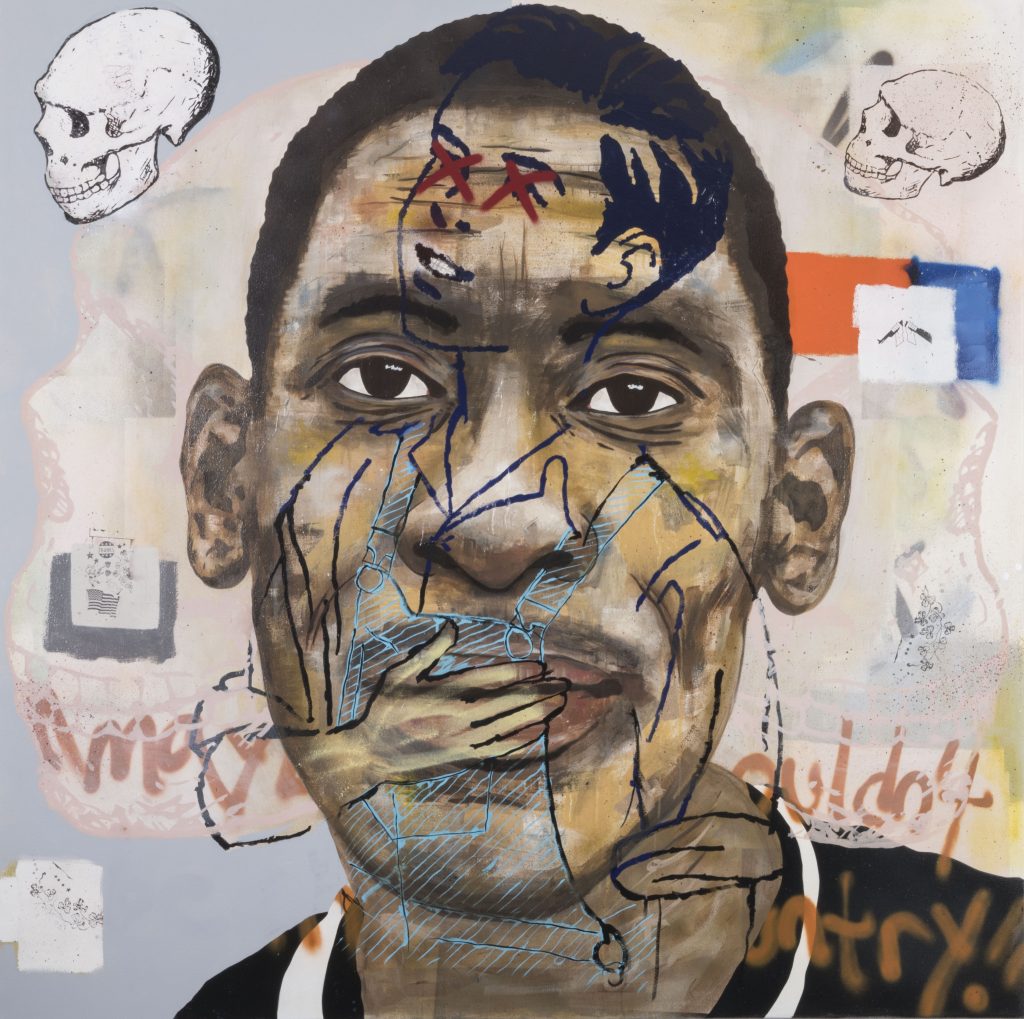
“There is Nothing in the World More Dangerous Than a Defeated Army Heading Home” by Scout Pines
The Collaborative: Have you done much work out in the wild lately?
Scout: We used to put up street art before social media was so prominent and it got a chance to live in the community and be seen. Now you put something up and photos get taken, people recognize the building and it doesn’t last as long as it used to. Its…I’m not sure disheartening is the right word but…
No, in Hudson we have so many transplants that don’t have a community connection—just people who want to hang in a house for the weekend. So it is disheartening when you put something up for the community and it disappears.
I remember going into a very expensive home for a job I was doing. This couple was very well off and I could see one of my paintings I had done in Hudson hanging behind his desk. He was kind of embarrassed and sheepish.
The Collaborative: There are folks who go out and collect street art as a hobby. That has to be frustrating when you create something that is meant to be seen by the community.
Scout: I don’t mind, per se, what happens to it. I like to put it up as a gift, an offering to a certain neighborhood.
The Collaborative: A lot has changed since you started. There is a larger movement now to use street art and murals in public projects. How does that strike you? Does it feel too safe?
Scout: In general I do have a concern. Often a lot of this work is designed as a backdrop for gentrifying a new area around high-end apartments. And new apartments are fine and new businesses are fine. I don’t have a problem with that. But I’m not interested in doing work in that setting. It does seem in some ways they are forgetting the neighborhoods that could use it. It is a concern of mine that I don’t want my work being used as a scenic backdrop where people are being displaced.
The Collaborative: Obviously Hudson is a place that has changed drastically thanks to development and gentrification but a lot there has not changed.
Scout: So much money is being poured into Hudson from people who don’t really live there full time. I do think we need to look at that economic boom and ask—is it affecting everyone equitably? Rent is through the roof. Again, I don’t have a problem with new restaurants and bars. I enjoy getting a fancy drink. I like a nice meal but when everything is being turned into an Airbnb where do the residents go? They are pushed out. It is a really complex issue that is exasperated around here. I’m not sure that all the development is benefitting the people of Hudson who really need it. Or just creating a playland for those who come up on Friday and all go back to the city on Wednesday. There is not as much community throughout the city as there should be.
When I lived in Albany around Grand Street, I would talk to the people who live there about what they wanted to see in their neighborhood. I knew everyone. I was friends with them. I knew what mattered to them because I asked.
“A More Perfect Union” opens Saturday at Thompson Giroux Gallery 57 Main Street, Chatham from 4-6 PM. The show runs until Sept. 22.

